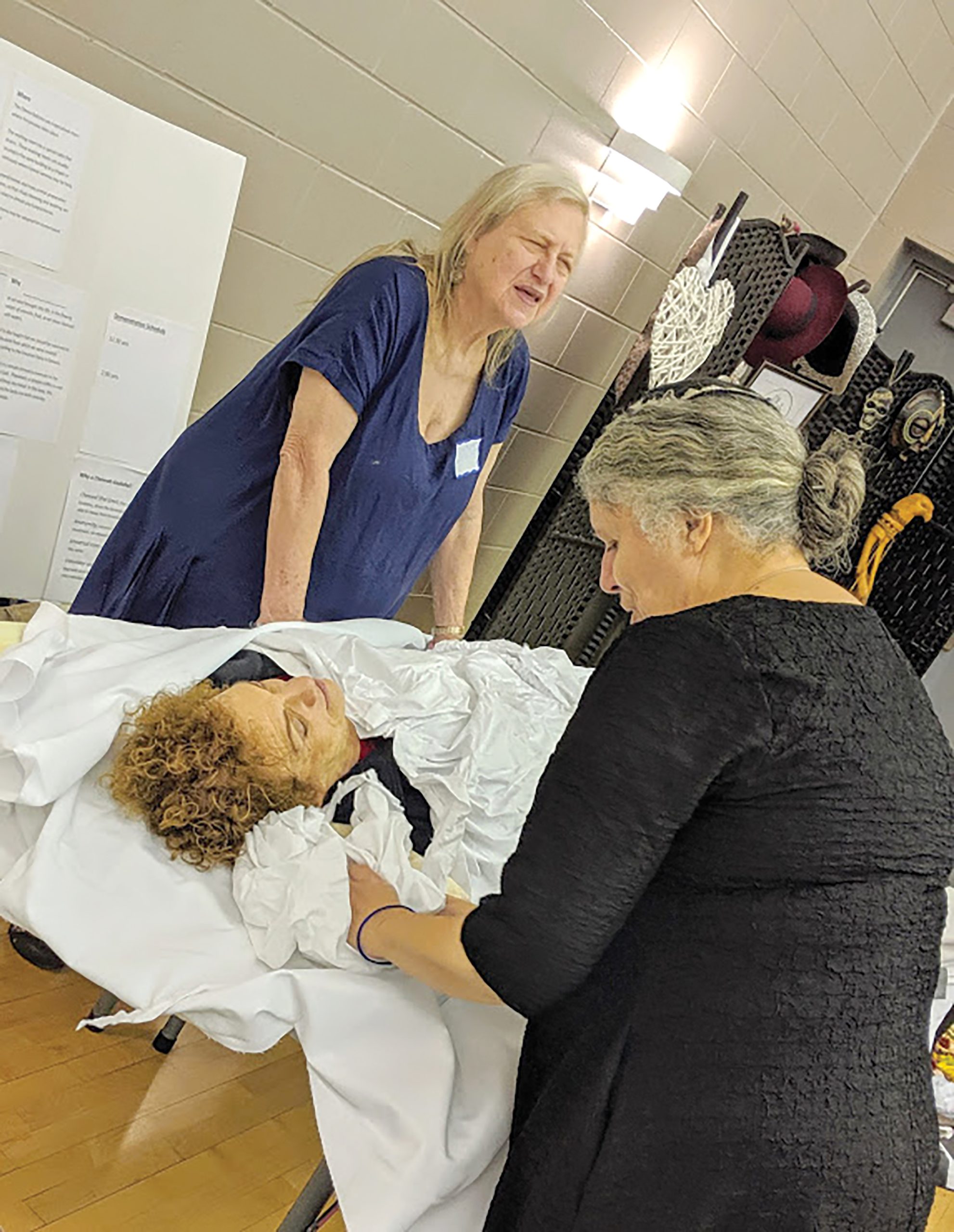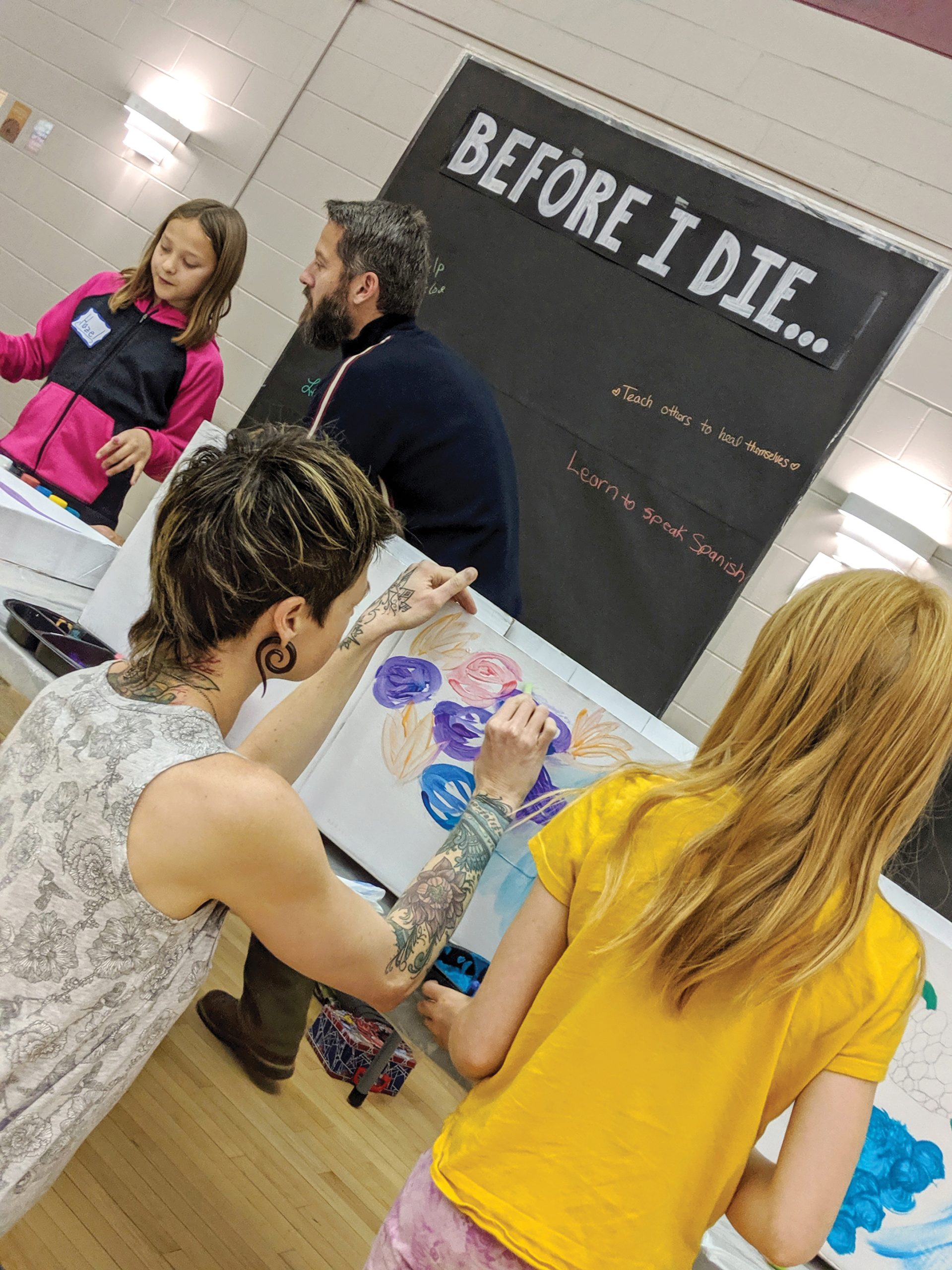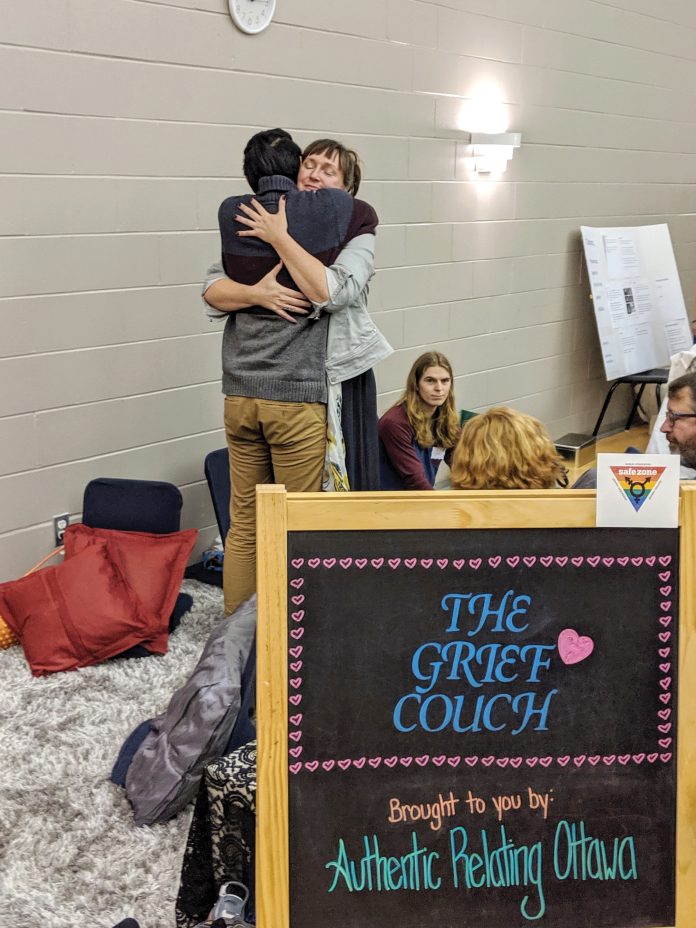By Sarah Williscraft ?with files from Truin Rebel
“We’re all going to die.”
That was the provocative tagline on a certificate of membership being handed out at Ottawa’s first annual Community Deathcare Expo, held on October 19 at the Churchill Seniors Centre.

Co-organizer Kelly Butler said the tagline was intended to spark conversation and engage on a topic often considered taboo.
“At some point in our lives we all face death, whether of someone we love or our own, and yet somehow we never want to talk about it. Because of this we meet it ill-prepared.”
She said death is something that affects us all and speaking openly about it needs to be normalized.
“In our society, we don’t really make space for death and yet we are enormously affected by it,” said Butler. “The death of someone we love is one of those monumental moments in our lives and yet we don’t make space for it. That’s something I’m hoping we can change.”
By holding events like this, Community Deathcare Ottawa is on its way to making that space. The expo offered a welcoming environment for people of all ages, with families bringing their children. Many young people were very interested in learning about environmentally friendly burial options.
Booths offered informational and emotional supports for attendees. Those who came to the expo could speak openly and ask questions about death, look for emotional support, and learn about having home vigils for their loved ones.

Kids were able to personalize a cardboard casket with paint and try their hand at building a grief mandala.
Visitors were invited to pay their respects at a home vigil demonstration. A grief phone was set up behind a privacy screen where visitors could “call” a deceased loved one and answer the question: “what would you say?”
A popular activity was the Death Café, guided by Heather Martel. Death Cafés are part of a global movement working to destigmatize death and allow people to consider their attitudes around mortality.
“As much as it’s not group therapy and it’s not grief counselling, it can be therapeutic to talk about death and dying and our own mortality. These conversations tend to happen with cake, which is always a plus,” said Martel.
Mandie Bates, a member of Community Deathcare Ottawa, said she was pleasantly surprised at the wide age range of the expo’s attendees.
“I was very hopeful that lots of people would come out,” said Bates. “Creating awareness and making death part of our every day and having no stigmas attached to it is important.”
Tawnis Commanda, who is looking to become a death doula (someone who assists in the dying process), said she was surprised at the amount of resources the expo had to offer.
“There is quite a variety of things people are doing locally, from the death cafés to the different green funeral options,” said Commanda. “I didn’t realize it was getting to the point where people are actually organizing to do this kind of thing.”
The expo also facilitated cultural education about death. Anna Maranta and Judith Wouk held Tahara demonstrations – the preparation of a body for burial in the Jewish tradition.
Maranta is a trained rabbi, interfaith minister and Hebrew priestess. She has a deep understanding of Tahara and was able to give detailed demonstrations of the ritual at the expo.
“The ritual is a moment of transition in the life or a person from their living to their final resting point,” said Maranta. “In Jewish tradition, we talk about the soul being in or around the body in the short little while after death. This process of cleansing and ritually purifying the body is respectful and provides an opportunity to pray over the deceased one.”
Kyla Carson, a psychiatrist and medium, said death should be as easy for us to talk about as birth.
“It’s very easy to be dead; being alive is the tricky part,” said Carson. “Western society is in denial of death which I think is a big mistake. It comes as such a terrible shock when you are bereaved, and I think dying should be part of an ongoing conversation to prevent that shock.”
